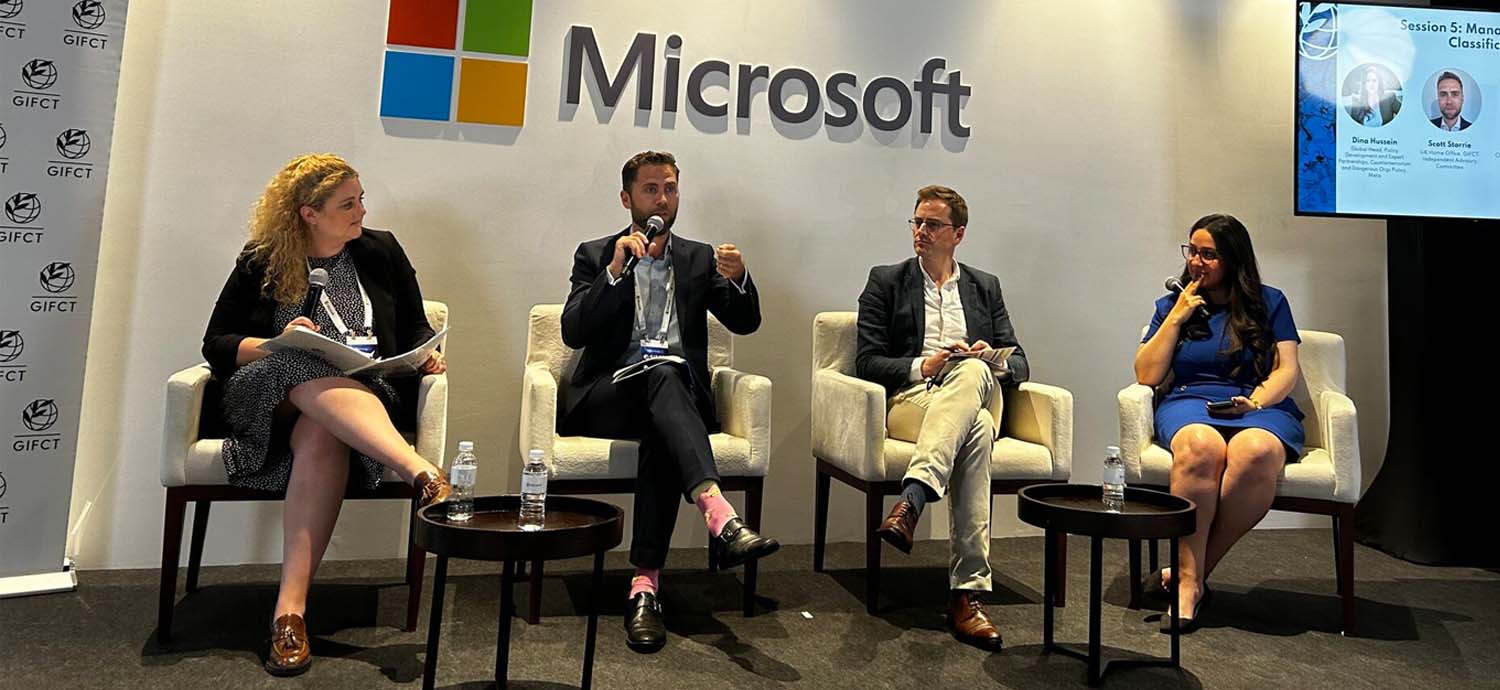
Dr Katy Vaughan, a Senior Lecturer at Swansea University, recently spoke at the Global Internet Forum to Counter Terrorism (GIFCT) Global Multistakeholder Forum, hosted at the Microsoft Offices in Singapore.
GIFCT is an NGO designed to prevent terrorists and violent extremists from exploiting digital platforms, whose membership includes major tech companies such as all of the Meta Platforms, Google, Amazon, and Zoom. Their aim being to work together on a global basis to counteract terrorist content and threats on their platforms. Katy has previously been a member of GIFCT’s Legal Frameworks Working Group.
In relation to this mission, the Forum was an event that brought together industry, experts, civil society, government officials, and practitioners to discuss the emerging security and tech trends that are currently shaping terrorist and violent extremist threats online, and the solutions that the GIFCT network is developing to address them.
Several government officials were in attendance, alongside leading members of the GIFCT network, with many members represented including Microsoft and YouTube, alongside leading NGOs such as Tech Against Terrorism.
The Forum tackled key international issues, such as the implications and opportunities of implementing Artificial Intelligence (AI) in the counter-terrorism space. These themes were supplemented by key updates on network members’ work, such as the Christchurch Call, a network of experts, academics, government and practitioners that work to end the use of social media for violent extremist content. The Call are another organisation that Katy works closely with, serving as Co-Chair to their Advisory Network.
At the Forum, Katy spoke alongside representatives from Meta, Tech Against Terrorism and the UK Home Office, as part of a session that looked at the classification and designation of violent extremist content, and the potential implications of this for industry and government alike.
Speaking on being a part of the Global Forum, Katy had the following to say:
“Events such as these are crucial to bring together a diverse range of perspectives which are needed in order to counter the spread of terrorist and violent extremist content online whilst protecting human rights, and a free, open and secure internet.”
